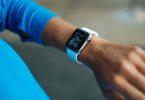In the realm of Robotics and Artificial Intelligence (AI), Data Science stands as a formidable ally, driving innovation and propelling advancements to new heights. The fusion of Data Science principles with robotics and AI has revolutionized industries, from manufacturing and healthcare to autonomous vehicles and beyond. As the demand for skilled professionals in this field grows, individuals with an Online Data Science Certification are poised to make significant contributions to the future of robotics and AI.
Unlocking the Potential of Robotics with Data Science
Robotics has undergone a profound transformation with the integration of Data Science techniques. Traditionally, robots were programmed with rigid instructions for specific tasks, limiting their adaptability to dynamic environments. However, Data Science has ushered in a new era of intelligent robots capable of learning from data and making autonomous decisions.
Machine Learning algorithms play a pivotal role in enabling robots to perceive and interact with their surroundings. For instance, in industrial settings, robots equipped with computer vision algorithms can identify and classify objects on assembly lines. This capability allows for precise manipulation of objects, enhancing efficiency and productivity.
Moreover, Data Science empowers robots with the ability to learn from experience. Reinforcement Learning, a subset of Machine Learning, enables robots to improve their actions based on feedback from their environment. This learning process enables robots to optimize tasks such as navigation, path planning, and object manipulation in real-world scenarios.
Enhancing AI Capabilities with Data Science
In the realm of Artificial Intelligence, Data Science serves as the backbone of intelligent systems. AI models rely on vast amounts of data to learn and make decisions, and Data Science provides the tools to analyze and extract insights from this data.
Natural Language Processing (NLP), a branch of AI, benefits greatly from Data Science techniques. NLP models, such as language translators and chatbots, require massive datasets to understand and generate human-like text. Data Science enables the training of these models on diverse datasets, improving their accuracy and language comprehension.
Furthermore, Data Science contributes to the development of AI algorithms that can recognize patterns and anomalies in data. This capability is invaluable in applications such as fraud detection in finance, medical diagnosis in healthcare, and predictive maintenance in manufacturing. By analyzing historical data, AI models can identify deviations from normal patterns, alerting stakeholders to potential issues before they escalate.
Applications of Data Science in Robotics and AI
The applications of Data Science in Robotics and AI are vast and diverse, spanning across various industries:
Autonomous Vehicles: Self-driving cars rely heavily on Data Science algorithms to perceive their surroundings, make decisions, and navigate safely. Machine Learning models analyze sensor data from cameras, LiDAR, and radar to identify objects, predict trajectories, and react to changing road conditions.
Healthcare Robotics: In the healthcare sector, robots equipped with Data Science capabilities assist in surgeries, patient care, and rehabilitation. Machine Learning algorithms analyze medical images to detect tumors, monitor vital signs, and personalize treatment plans based on patient data.
Manufacturing and Industry 4.0: Data Science-driven robotics revolutionize manufacturing processes by optimizing production lines, predicting equipment failures, and ensuring quality control. Robots equipped with AI can adapt to changing production demands, reducing downtime and increasing efficiency.
Smart Assistants and Chatbots: Virtual assistants like Siri, Alexa, and Google Assistant rely on NLP algorithms powered by Data Science to understand and respond to user queries. These chatbots use Machine Learning to continuously improve their language understanding and provide personalized responses.
Robotics in Exploration: Data Science plays a crucial role in robotics used for exploration tasks, such as space exploration and deep-sea investigations. Robots equipped with AI can analyze vast amounts of data from sensors and cameras to navigate challenging terrains, map unknown environments, and make informed decisions in real-time.
Challenges and Future Directions
Despite the immense potential of Data Science in robotics and AI, several challenges remain. One major challenge is the need for large and diverse datasets for training AI models effectively. Additionally, ensuring the safety and ethical use of AI-driven robotics is a significant concern, particularly in areas such as autonomous vehicles and healthcare.
Looking ahead, the future of robotics and AI with Data Science holds exciting possibilities. Advancements in Deep Learning, Reinforcement Learning, and Explainable AI will continue to drive innovation in intelligent robotics. Interdisciplinary collaborations between Data Scientists, roboticists, and AI researchers will lead to breakthroughs in areas such as human-robot interaction, swarm robotics, and cognitive robotics.
Conclusion
In conclusion, the integration of Data Science with Robotics and Artificial Intelligence is reshaping industries and paving the way for a more automated and intelligent future. Individuals equipped with a Data Science Course which is poised to play a pivotal role in this technological revolution. From autonomous vehicles and healthcare robotics to smart assistants and exploration missions, Data Science-driven robotics and AI are transforming the way we live and work.
As we navigate this era of innovation, the importance of understanding the synergy between Data Science, robotics, and AI cannot be overstated. The future promises unparalleled advancements in intelligent systems that can perceive, learn, and adapt to complex environments. Those with a deep understanding of Data Science principles and techniques will drive these innovations forward, shaping a world where intelligent robots and AI-driven solutions enhance our lives in profound ways. Embracing the potential of Data Science in robotics and AI is not just a technological advancement—it is a step towards a smarter, more efficient, and interconnected future.







